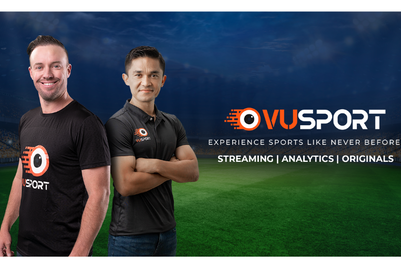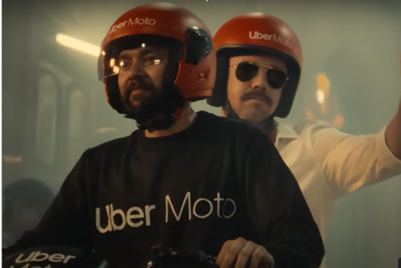.jpg&h=570&w=855&q=100&v=20250320&c=1)
India’s consumer battlefield has new rules: teach, don’t just sell. While traditional brands still rely on the megaphone for marketing themselves, a new generation of insurgents have discovered a more powerful weapon—education as economic advantage.
These are the brands explaining how seed oils affect your gut, why your regular toothpaste might be doing more harm than good and how to build a skincare routine that works for Indian skin under the Indian sun. They are not just rebranding old categories; they are reintroducing them—an Instagram carousel, a quiz, a pop-up, and a pack label—one at a time. Complex concepts are being simplified to raise consumer awareness.
In 2025, the economics behind this strategy are compelling: the more you educate, the less you pay to acquire. With digital advertising costs skyrocketing—an increase of 60-70% in recent years—the traditional approach of paying for brand visibility has become increasingly unsustainable. Every scroll costs more, every click converts less. If you are not shaping the buyer’s worldview as they arrive, you are fighting for visibility in a losing game.
Building consumer understanding before generating desire gives you a significant opportunity. When consumers comprehend what makes a product truly valuable, they click faster, pay more, stay longer. They remain loyal because they have internalised the brand’s perspective. Perhaps, most importantly, for sustainable growth, they become more effective brand ambassadors, recommending products with clarity and conviction.
This educational approach is proving particularly effective beyond the metros. In tier-2 and tier-3 cities, the speed of digital adoption is outpacing the speed of product education. Consumers have access to an unprecedented range of products but lack structured introduction to these categories. They are exploring face serums, nutritional supplements and sustainable period products, often for the first time, without the contextual understanding that the urban consumers have gradually absorbed over the years.
A legacy issue
Legacy brands frequently misinterpret this phenomenon. They speak in price points, celebrity shortcuts and trust proxies. They operate on outdated assumptions that non-metro consumers are fundamentally ‘new to category’ and therefore need simplistic messaging. But this misses a crucial insight: these consumers are not new to category; they are new to choices. They don’t want simplistic messaging; they want clarity amid the overwhelming clutter.
This is precisely where insurgent brands win. They explain first, sell later. They don’t assume awareness, they enable it. This is where agility lies.
Much has been said about startups being agile, but true business agility extends beyond operational aspects like rapid product development or packaging iterations. It encompasses the ability to identify and address knowledge gaps that consumers may not be able to articulate.
The most innovative brands are creating sophisticated education systems by analysing patterns in consumer interactions, whether that is recurring questions in comment sections, drop-off points on product pages, or queries posed to customer service.
Artificial intelligence (AI) is increasingly becoming the infrastructure that enables this approach to scale. AI-powered chatbots resolve confusion in real time. Content engines generate educational materials across multiple languages.
Personalisation algorithms recommend products with contextual explanations rather than generic suggestions. In this way, AI is scaling empathy, ensuring consumers receive the specific information they need when they need it.
Legacy brands, in contrast, are sitting on vast repositories of consumer data but seem to be slower at connecting the dots between what their consumers ask, what their product claims and how their brand actually educates. The result is a vacuum filled by misinformation or worse, competitors.
Time value of education
The real power of an educator brand lies in what happens over time, extending far beyond immediate sales metrics. When a brand consistently builds consumer knowledge, it simultaneously builds preference that compounds over time.
A consumer who learns a new way of thinking through your brand could internalise your worldview. The long-term impact of education-focused branding creates a form of market defensibility that is difficult to replicate through traditional means.
We have seen it happen. ‘Clean label’ wasn’t a thing until a few food brands taught us it could be. ‘Barrier repair’ wasn’t skincare lingo until it was broken down in 10 different ways for us. Oral sprays, natural deos, microbiome-friendly anything—these were not obvious needs. They were taught. And now, they are expected. New frameworks of understanding have been created, and the market has shifted.
Every time an insurgent brand successfully establishes new category knowledge, it raises standards for every market player. More significantly, it raises consumer expectations for transparency and education going forward. This creates an increasingly challenging environment for those relying on traditional marketing approaches.
Legacy brands are watching from the stands, some still believing that they can buy back relevance. But education doesn’t work that way. It doesn’t scale with ad spend. It develops through consistent attention to consumer needs, clarity of communication, and authentic commitment to consumer understanding.
So what is the cost of failing to adopt an educational approach? It’s not just lower conversion; it is losing control of the category conversation. As consumer expectations continue to evolve, brands that systematically educate will increasingly define market standards and expectations.
In India’s dynamic and ever-evolving consumer landscape, this may prove to be the most significant competitive advantage yet—and the most difficult to overcome. The brands that teach today will be the ones that lead tomorrow. Will yours be one of them?

— Kruti Berawala, co-founder, Stratedgy.


.jpg&h=334&w=500&q=100&v=20250320&c=1)
.jpg&h=334&w=500&q=100&v=20250320&c=1)



.jpg&h=334&w=500&q=100&v=20250320&c=1)


.jpg&h=334&w=500&q=100&v=20250320&c=1)
.jpg&h=334&w=500&q=100&v=20250320&c=1)
.jpg&h=268&w=401&q=100&v=20250320&c=1)

.jpg&h=268&w=401&q=100&v=20250320&c=1)





